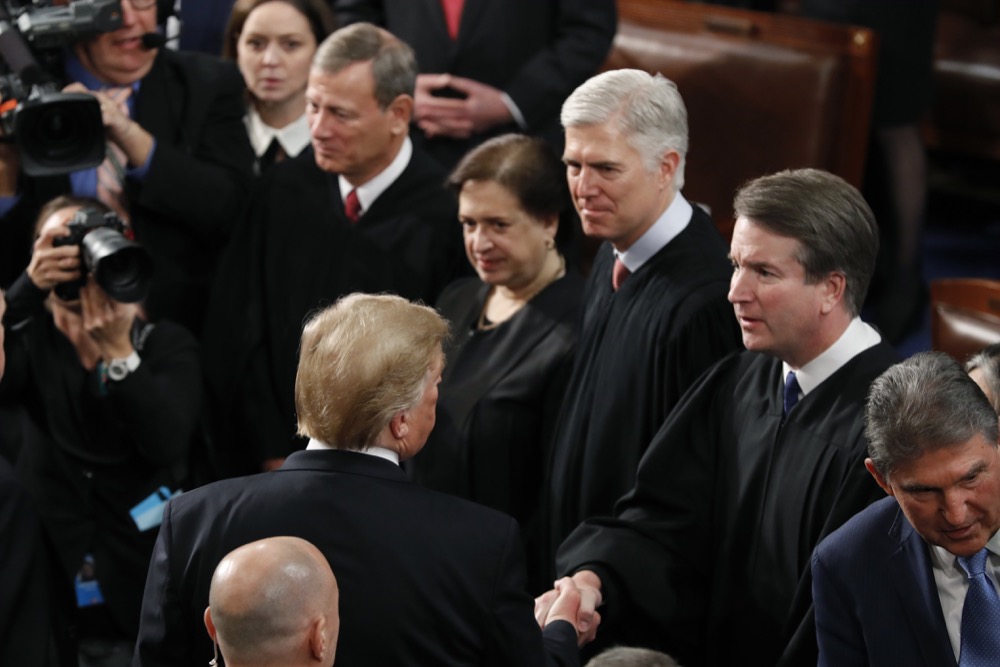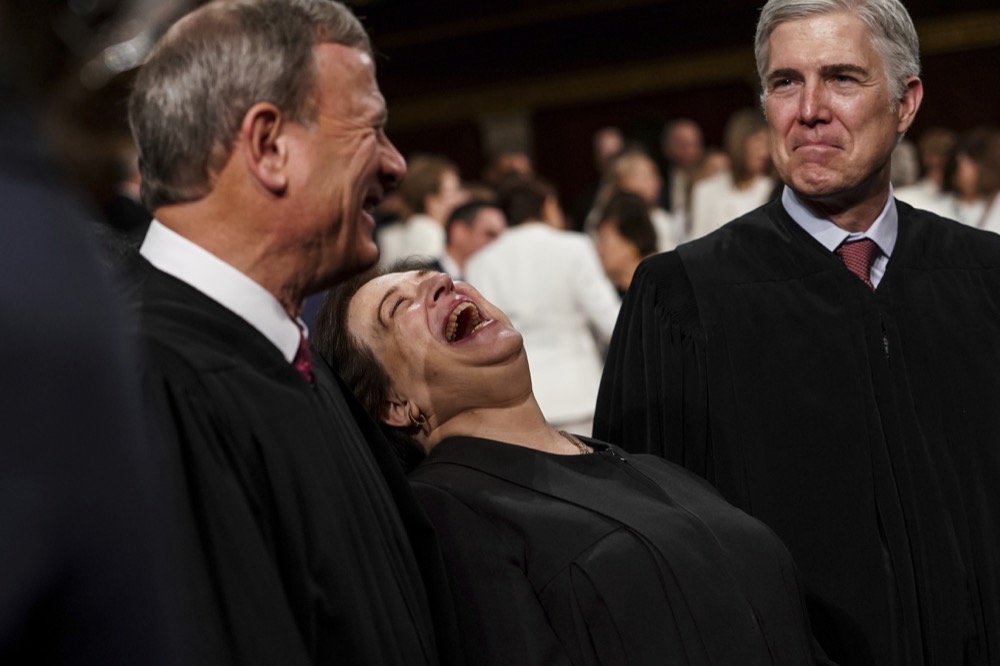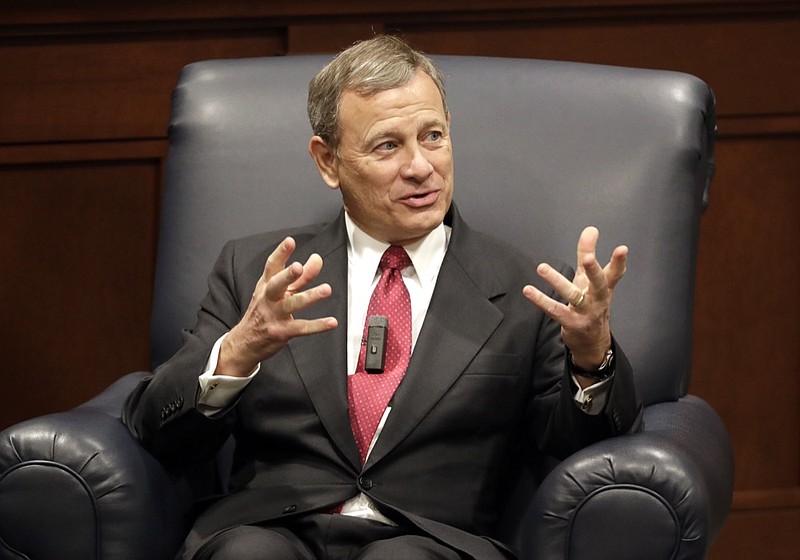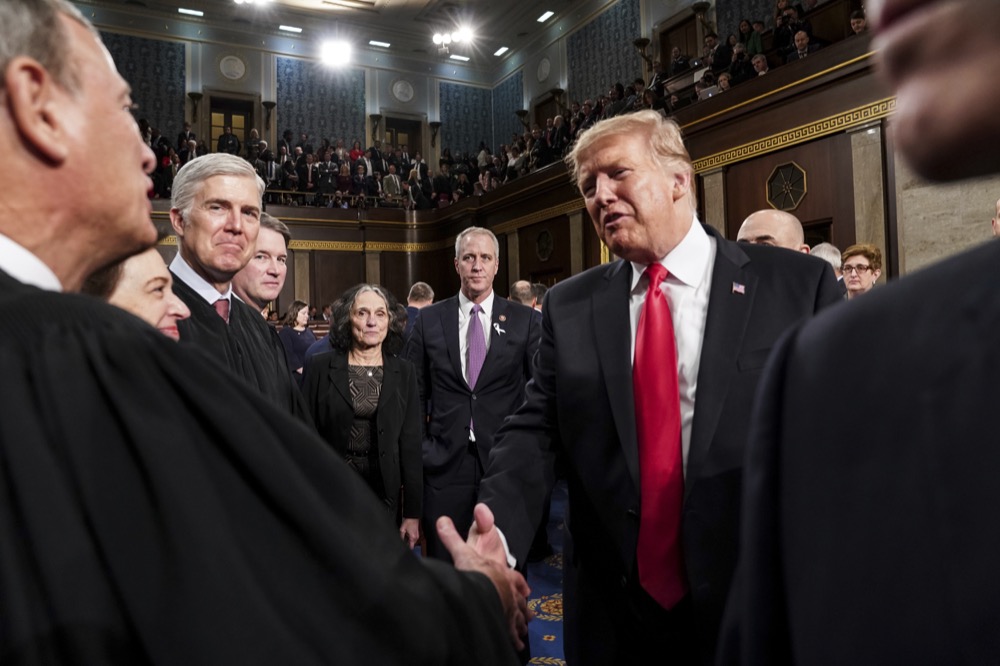NASHVILLE, Tenn. (AP) - Chief Justice John Roberts said Wednesday that he's gone "back and forth" on whether U.S. Supreme Court justices should attend the State of the Union address.
Roberts told some Belmont University law students and prominent lawyers Wednesday that the president's annual speech to Congress is an important civic ceremony, and one that he has attended each time while he's been on the court.
Roberts was among four justices on hand for President Donald Trump's address Tuesday night. The other five did not attend- and Roberts said he understood why some justices don't want to be there.
 President Donald Trump shakes hands with Supreme Court Justice Brett Kavanaugh, after delivering his State of the Union address to a joint session of Congress on Capitol Hill in Washington, Tuesday, Feb. 5, 2019. Watching are from left, Supreme Court Chief Justice John Roberts, Associate Justice Elena Kagan and Associate Justice Neil Gorsuch. (AP Photo/J. Scott Applewhite)
President Donald Trump shakes hands with Supreme Court Justice Brett Kavanaugh, after delivering his State of the Union address to a joint session of Congress on Capitol Hill in Washington, Tuesday, Feb. 5, 2019. Watching are from left, Supreme Court Chief Justice John Roberts, Associate Justice Elena Kagan and Associate Justice Neil Gorsuch. (AP Photo/J. Scott Applewhite)
He said the event is a "political pep rally," with the president laying out what he wants to do and "hooting and hollering" ensuing. The justices must figure out when to react to what's said - during nonpartisan moments, for instance, when a hero or the military is being recognized - and when to lay low. The joint chiefs of staff and others face the same decision when trying to avoid reactions to the political moments.
"The hard part is, according to protocol and good sense, we sit there," Roberts said. "Except, sometimes we don't. It's a very hard call to make."
 Supreme Court Chief Justice John Roberts, left, Associate Justices Elena Kagan and Neil Gorsuch, right, stand in the House chamber before President Donald Trump gave his State of the Union speech to a joint session of Congress, Tuesday, Feb. 5, 2019 at the Capitol in Washington. (Doug Mills/The New York Times via AP, Pool)
Supreme Court Chief Justice John Roberts, left, Associate Justices Elena Kagan and Neil Gorsuch, right, stand in the House chamber before President Donald Trump gave his State of the Union speech to a joint session of Congress, Tuesday, Feb. 5, 2019 at the Capitol in Washington. (Doug Mills/The New York Times via AP, Pool)
Roberts' discussion was led by Belmont law school dean Alberto Gonzales, a former attorney general under President George W. Bush, who nominated Roberts.
Roberts also cautioned against labeling justices based on which president appointed them. He said the lack of public knowledge of the Supreme Court's role and powers is becoming increasingly problematic with political polarization.
"The one thing that many people just don't realize about the court is we're not just another part of the political process," Roberts said. "But, you can understand how somebody would think that if you're seeing the confirmation hearing where Democrats and Republicans, party line votes, you have to assume the person who comes out of that process reflects that same division. And that historically has not been the case."

